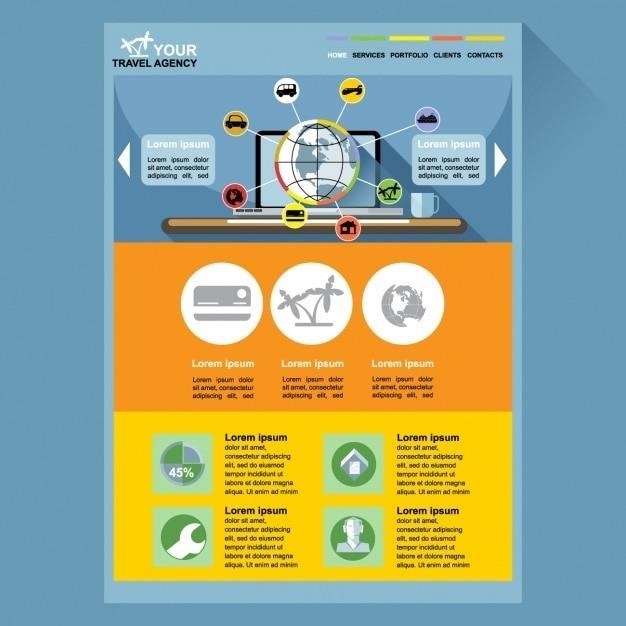A California Last Will and Testament is a legal document that outlines how an individual’s assets and property should be distributed after their death. It allows the testator to name beneficiaries, specify how the estate will be divided, and appoint an executor to carry out their final instructions. The 2023 California Will Form is a downloadable PDF template designed to help individuals create a valid will that complies with California’s Probate Code. It is essential to use the most current version of the form to ensure legal recognition of the testator’s wishes. The document can be completed manually or digitally and must be signed in the presence of witnesses to be enforceable. Having a will provides peace of mind, ensuring that one’s estate is managed according to their preferences.
1.1 Definition and Purpose
A California Last Will and Testament is a legal document that allows an individual, known as the testator, to outline how their assets, property, and financial accounts should be managed and distributed after their death. The primary purpose of this document is to ensure that the testator’s wishes are legally recognized and carried out by their designated beneficiaries and executor. It serves as a clear guide for the distribution of the estate, preventing potential disputes and ensuring that the testator’s intentions are respected.
The California Will Form 2023 PDF is specifically designed to comply with the state’s Probate Code, which governs the creation and execution of wills. This document is essential for individuals who wish to have control over the division of their estate, including real property, personal belongings, financial assets, and any other possessions. By creating a will, the testator can appoint a trusted executor to oversee the administration of the estate, ensuring that all instructions are followed diligently.
One of the key purposes of a California Last Will and Testament is to provide clarity and certainty for loved ones during a difficult time. Without a will, the state’s intestacy laws dictate how the estate is divided, which may not align with the testator’s preferences. By drafting a will, individuals can specify how their assets should be allocated, name guardians for minor children, and even include charitable donations or specific bequests; This level of customization ensures that the testator’s legacy is preserved and their loved ones are protected.

The document also serves as a safeguard against legal complications. If a will is properly executed and witnessed, it minimizes the risk of disputes among heirs and ensures that the estate is distributed according to the testator’s explicit instructions. Additionally, a will can be updated or revised at any time, allowing the testator to adapt their wishes as their personal circumstances or estate composition changes. This flexibility makes it an indispensable tool for comprehensive estate planning.
1.2 Importance of Having a Will
HAVING a will is one of the most important steps an individual can take to ensure their wishes are respected after their passing; A California Last Will and Testament serves as a legally binding document that outlines how an individual’s assets, property, and financial accounts should be distributed. Without a will, the state’s intestacy laws dictate the division of the estate, which may not align with the testator’s preferences. This can lead to potential disputes among heirs and a lack of control over how the estate is managed.

The primary importance of having a will lies in its ability to provide clarity and certainty for loved ones. By drafting a will, the testator can specify how their estate should be divided, name beneficiaries for specific assets, and appoint an executor to oversee the administration of the estate. This ensures that the testator’s intentions are carried out and reduces the likelihood of legal challenges or family conflicts. Additionally, a will allows the testator to appoint a guardian for minor children, ensuring their well-being and care are prioritized.
Another critical aspect of having a will is its role in minimizing legal complications. When a person dies intestate (without a will), the court takes control of the estate, which can lead to lengthy and costly probate processes. A will streamlines this process by providing clear instructions, reducing the burden on the executor and beneficiaries. Furthermore, a will can help reduce estate taxes by allowing the testator to structure the distribution of assets in a tax-efficient manner.
A will also serves as a means of expressing one’s values and legacy. It provides an opportunity to leave behind specific bequests, charitable donations, or personal messages. This allows the testator to ensure that their contributions to loved ones or causes they care about are acknowledged and fulfilled. In addition, a will can be updated or revised at any time, allowing the testator to adapt their wishes as their personal circumstances or estate composition changes.
Perhaps most importantly, having a will offers peace of mind. It eliminates the uncertainty and stress that loved ones may face when trying to navigate the estate administration process without clear guidance. By taking the time to create a will, the testator can ensure that their estate is managed according to their preferences and that their loved ones are protected and cared for.
Legal Requirements for a Valid Will in California

In California, a valid will requires the testator to be at least 18 years old and of sound mind, ensuring understanding of the document’s implications. The will must be written and signed by the testator in the presence of two adult witnesses, who also sign it. Witnesses should not be beneficiaries to prevent conflicts. A self-proving affidavit can be included to expedite probate. These legal requirements ensure the will accurately reflects the testator’s intentions and prevents fraud. Non-compliance can invalidate the will, leading to legal disputes and delays in estate administration.

2.1 Capacity and Testamentary Capacity
Under California law, the creation of a valid will requires the testator to possess the necessary mental and legal capacity, often referred to as “testamentary capacity.” This means the individual must be of sound mind and fully understand the nature of the document they are creating. Specifically, the testator must be able to comprehend the extent of their property, recognize their beneficiaries, and grasp the overall implications of their decisions. This legal standard ensures that the will accurately reflects the testator’s true intentions and is not influenced by mental impairment or external pressure.
The concept of capacity is defined by the California Probate Code, which states that a person must be at least 18 years old to create a valid will. This age requirement is in place to ensure that minors, who may lack the maturity to make informed decisions about their estate, cannot legally bind themselves through a will. Additionally, the testator must be mentally sound, meaning they should not suffer from conditions such as dementia, insanity, or any other mental incapacity that could impair their judgment.

Testamentary capacity is not solely about age but also about the testator’s ability to understand the consequences of their actions. For example, if a person is under the influence of medication, suffering from a mental health condition, or coerced by another party, their capacity may be called into question. Courts often examine whether the testator had a “clear understanding” of their actions when signing the will. This includes being aware of their assets, understanding the legal effects of the will, and knowing how their decisions will impact their heirs.
In cases where capacity is disputed, the burden of proof typically falls on the party asserting the testator’s incapacity. This may involve presenting medical records, expert testimony, or other evidence to demonstrate that the testator lacked the necessary mental clarity at the time of signing the will. If a court determines that the testator did not possess testamentary capacity, the will may be deemed invalid, and the estate could be distributed according to California’s intestate succession laws.
It is important to note that testamentary capacity is not the same as general mental capacity. A person may be deemed mentally incompetent for other legal purposes but still have the capacity to create a will. This distinction highlights the nuanced nature of the law in this area. To avoid disputes, many individuals choose to include a self-proving affidavit with their will, which provides additional evidence of their capacity at the time of signing.
2.2 Witness Requirements and Signature
In California, the proper execution of a will requires specific witness requirements and signature procedures to ensure its validity. According to the California Probate Code, a will must be witnessed by at least two individuals who are 18 years of age or older. These witnesses must be disinterested parties, meaning they are not beneficiaries of the will or otherwise financially connected to the estate. This ensures that the witnesses are impartial and that their testimony is credible if the will is contested in court.

The process of witnessing a will involves the testator signing the document in the presence of both witnesses, who then also sign the will in the testator’s presence. The witnesses must acknowledge that they believe the testator to be of sound mind and that the will is being executed voluntarily, without coercion or undue influence. This step is crucial because it provides a layer of protection against disputes over the validity of the will after the testator’s death.

While California does not require a will to be notarized, it is highly recommended to make the will “self-proving.” This involves having the will notarized in the presence of the witnesses, creating an affidavit that confirms the testator’s capacity and the voluntary nature of the will. A self-proving will streamlines the probate process by eliminating the need for witness testimony in court, which can save time and reduce legal costs for the estate.
The signature of the testator must be placed at the end of the will, following the final provision. The witnesses should then sign their names and provide their contact information, such as their address, to facilitate communication if needed. It is important to ensure that all signatures are original and notarized if applicable, as photocopied or digital signatures are not acceptable under California law.
Failing to meet these witness and signature requirements can lead to the will being deemed invalid, resulting in the estate being distributed according to California’s intestate succession laws rather than the testator’s wishes. For this reason, it is essential to carefully follow the legal requirements and consider consulting an attorney to ensure the will is properly executed. Proper witnessing and signature procedures are fundamental to upholding the testator’s intentions and protecting the rights of their beneficiaries.

The Process of Creating a California Last Will

Creating a California last will involves several steps to ensure the document is legally valid and accurately reflects the testator’s wishes. Begin by gathering necessary information, such as asset details, beneficiary designations, and executor choices. Next, choose a method to create the will, such as using a DIY kit or consulting an attorney. Prepare the will by filling out the form accurately and including sections for asset distribution, executor appointment, and other final instructions. Once complete, execute the will by signing it in the presence of two witnesses, who will also sign the document. Finally, store the will in a safe location and update it as needed to reflect life changes.
3.1 DIY Will Kits vs. Hiring an Attorney
When creating a California last will, individuals often face the decision of whether to use a DIY will kit or hire an attorney. Both options have their advantages and disadvantages, and the choice depends on the complexity of the estate and the testator’s comfort level with legal matters.
DIY will kits are cost-effective and widely available online in the form of downloadable PDF templates. These kits provide pre-drafted forms that guide the testator through the process of outlining their wishes. They are ideal for individuals with straightforward estates, such as those with few assets, no complex family situations, or no need for advanced estate planning tools like trusts. The primary advantage of DIY kits is their affordability and convenience, as they can be completed from home without the need for professional legal advice. However, they may lack the customization and legal precision that an attorney can provide, which could lead to potential oversights or ambiguities in the document.
Hiring an attorney, on the other hand, offers a more personalized and legally sound approach. An estate planning attorney can tailor the will to the testator’s specific needs, ensuring that all legal requirements under the California Probate Code are met. This is particularly important for individuals with complex estates, such as those with significant assets, multiple beneficiaries, or unique family circumstances (e.g., blended families, special needs children, or contested relationships). Attorneys can also provide guidance on tax implications, probate avoidance strategies, and the inclusion of additional documents like powers of attorney or advance directives. While hiring an attorney involves higher upfront costs, it offers peace of mind and reduces the risk of legal challenges or misunderstandings after the testator’s passing.
For most individuals, the decision comes down to the complexity of their estate and their budget. DIY will kits are a viable option for simple cases, but for more intricate situations, consulting an attorney is highly recommended. Regardless of the method chosen, the key is to ensure the will is properly executed, witnessed, and updated as needed to reflect life changes and legal requirements.
3.2 Steps to Prepare the Will
Preparing a California last will involves a series of organized steps to ensure the document is legally valid and accurately reflects the testator’s wishes. Whether using a DIY will kit or working with an attorney, following these steps carefully is crucial for a smooth estate planning process.
Step 1: Gather Necessary Information
Before filling out the California will form, it is essential to gather all relevant information. This includes a list of assets, such as real estate, bank accounts, investments, and personal property. Additionally, the testator should identify their beneficiaries, including their full names, relationships, and contact information. They should also decide who will serve as the executor of the estate, as well as any alternate executors in case the primary choice is unable to fulfill the role.
Step 2: Fill Out the Will Form
Using the California last will and testament form (available as a downloadable PDF), the testator should carefully complete each section. The form will typically include sections for appointing an executor, naming beneficiaries, distributing assets, and outlining funeral instructions. It is important to follow the instructions provided with the form and ensure that all information is accurate and complete. Avoid adding or crossing out words, as this could invalidate the will.
Step 3: Appoint an Executor
The executor is responsible for carrying out the instructions outlined in the will, managing the estate, and overseeing the probate process. The testator should choose someone they trust, such as a spouse, family member, or close friend. The executor must be at least 18 years old and willing to accept the responsibility. It is also wise to name alternate executors in case the primary choice is unable to serve.
Step 4: Name Beneficiaries
Beneficiaries are the individuals or organizations that will inherit the testator’s assets. The will should clearly outline how the estate is to be divided, whether through specific gifts or proportional shares. The testator may also include provisions for minor children, such as naming a guardian or setting up a trust to manage their inheritance until they reach a certain age.
Step 5: Sign and Witness the Will
Under California law, a will must be signed by the testator and witnessed by at least two individuals who are not beneficiaries. The witnesses must acknowledge that they watched the testator sign the document and that the testator appeared to be of sound mind and under no undue influence. Some individuals also choose to create a self-proving affidavit, which can streamline the probate process by providing additional legal certainty.
Step 6: Store the Will Safely
Once the will is signed and witnessed, it should be stored in a secure location, such as a fireproof safe or a safety deposit box. The testator should inform the executor and other trusted individuals of the will’s location to ensure it can be accessed when needed. It is also important to review and update the will periodically, especially in response to life changes like marriage, divorce, the birth of a child, or the acquisition of significant assets.
By following these steps, individuals can create a valid and effective California last will and testament that reflects their wishes and ensures their loved ones are protected. Whether using a DIY will kit or working with an attorney, careful preparation is key to a successful estate plan.



